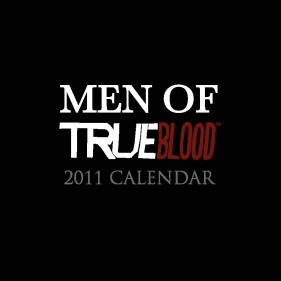GE
General electric
News Corp
News Corporation has control over many of the popular media products which makes them part of the big 6.
News Corporation in 2009 was known as the third largest industry in entertainment and in 2012 was the second largest media group in terms of revenue. The industry was created in 1979 by Rupert Murdoch as a holding company for News Limited. Rupert Murdoch is worth around $6.3 billion.
News Corporation owner Rupert Murdoch was involved in a scandal where he was reported to of hacked into celebrities, royalty and public citizens phones voicemails and bank accounts. This scandal meant the forced cancellation of popular british newspaper 'News of the World.'
Disney
The company is best known for the products of its film studio, the Walt Disney Studios, and today one of the largest and best-known studios in Hollywood. Disney also owns and operates the ABC broadcast television network; cable television networks such as Disney Channel, ESPN, A+E Networks, and ABC Family; publishing, merchandising, and theatre divisions; and owns and licenses 14 theme parks around the world. It also has a successful music division. Founded on October 16, 1923, by Walt and Roy Disney. The Walt Disney Company expanded its existing operations and also started divisions focused upon theatre, radio, music, publishing, and online media. In addition, it has created new divisions of the company in order to market more mature content than it typically associates with its flagship family-oriented brands. An early and well-known cartoon creation of the company, Mickey Mouse, is the official mascot of The Walt Disney Company. Walt Disney is worth between $42 and $52 billion.

Viacom Inc. is short for "Video & Audio Communications." As of 2010, it is the world's fourth-largest media conglomerate, behind The Walt Disney Company, Time Warner and News Corporation. The current Viacom was created on December 31, 2005 as a spinoff from CBS Corporation, which changed its name from Viacom to CBS at the same time. CBS, not Viacom, retains control of the over-the-air broadcasting, TV production, outdoor advertising, subscription pay television (Showtime) and publishing assets (Simon & Schuster) formerly owned by the larger company. Viacom connects with audiences through television, motion pictures, mobile platforms and online in more than 160 countries and territories. Viacom operates approximately 170 media networks reaching more than 600 million global subscribers and more than 500 branded digital media properties.
Viacom international also continues to focus on its own in-house productions made for its various networks (MTV, VH1, Nickelodeon, etc.) – these programs include Dora the Explorer, Pinky Dinky Doo, Invader Zim, The Hills, SpongeBob SquarePants, The Fairly OddParents, Behind the Music, Big Time Rush, iCarly and Victorious.
The Warner

Viacom
Viacom Inc. is short for "Video & Audio Communications." As of 2010, it is the world's fourth-largest media conglomerate, behind The Walt Disney Company, Time Warner and News Corporation. The current Viacom was created on December 31, 2005 as a spinoff from CBS Corporation, which changed its name from Viacom to CBS at the same time. CBS, not Viacom, retains control of the over-the-air broadcasting, TV production, outdoor advertising, subscription pay television (Showtime) and publishing assets (Simon & Schuster) formerly owned by the larger company. Viacom connects with audiences through television, motion pictures, mobile platforms and online in more than 160 countries and territories. Viacom operates approximately 170 media networks reaching more than 600 million global subscribers and more than 500 branded digital media properties.
Viacom international also continues to focus on its own in-house productions made for its various networks (MTV, VH1, Nickelodeon, etc.) – these programs include Dora the Explorer, Pinky Dinky Doo, Invader Zim, The Hills, SpongeBob SquarePants, The Fairly OddParents, Behind the Music, Big Time Rush, iCarly and Victorious.
The Warner
Warner Bros. Entertainment, Inc., also known as Warner Bros. Pictures or simply Warner Bros. (though the name was occasionally given in full form as Warner Brothers during the company's early years), is an American producer of film, television, and music entertainment. Warner owns half of The CW Television Network. The Warner Brothers introduced the first genuine talking picture in 1927. The company was founded by four brothers Harry, Albert, Samuel and Jack Warner. In 1903 they started aquiring movie theatres, and then they moved into film distribution. In 1913 they began producing their own films.














